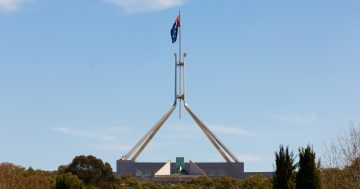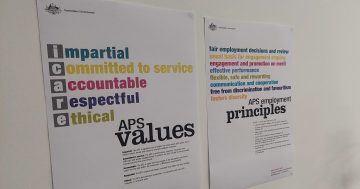
APS departments are already preparing briefs for the next term of government. Photo: nateemee.
It’s been a big year for the Australian Public Service, with every indication there will be no let up in 2025.
The federal election could be held as early as February, as late as May, or anywhere in between.
Armed with that uncertainty, is the APS already preparing incoming government briefs?
You betcha.
The caretaker period of government – once the election has been called and official campaigning has begun – gives public service agencies the time and space to fine-tune and finalise the briefs.
But it’s a certainty that this close to an election, even without knowing when it will be held, work is already underway on those so-called red books and blue books.
It’s not caretaker period yet, but the parties are already in campaign mode.
By extension, it’s a given that government agencies are well into their preparations for post-election scenarios.
They’re not referred to yet as incoming government briefs, probably so as not to inflame speculation among employees that their bosses might actually know when the election will be called.
Instead, the terms ‘strategic documents’ and ‘information documents’ are more readily used and will end up as subsections titles of the final briefs.
Tapping of shoulders has already begun, as increasingly more senior public servants across departments are being asked to contribute to these documents.
Some are not even told what they are being asked to contribute to, but you’d imagine it wouldn’t take a genius to work out what the assignment really is.
“Everyone knows they’re working on incoming government briefs, but no one actually admits it out loud,” one senior public servant told Region.
They’re being asked to provide specific details of their areas of expertise and the projects their teams are working on and – more importantly perhaps – what they see as priority policy directions.
An incoming government brief is actually a prime opportunity for government departments to position themselves in a way that will resonate with the new government—particularly if it is to be an actual new government of a different political persuasion from the one before the election.
That’s why there are two books prepared – one for a change of government and the other for a reelected government but with the possibility of new ministerial appointments.
Red book, blue book, Labor, Liberal. The titles are kind of cute, but they’re usually presented in the department’s preferred colouring and branding.
It’s a chance for a department secretary to talk directly to a new minister before knowing who they will be, with the fine-tuning and personal salutations added directly before it is delivered.
The briefs outline a department’s structure and introduce its most senior officials, and provide an overview of its purpose and functions.
However, they also allow for some bold positioning in highlighting what the departments themselves believe are their priorities and what they think should be pursued over the new term of government.
Strategies are proposed, and if a secretary is feeling emboldened enough, advice might even be given to incoming ministers in a formal, polite, matter-of-fact and non-threatening way, of course.
Because these briefs are prepared with the opposing political parties in mind, the two books can have quite different language and approaches.
Sure, the facts and figures will be the same, but the priorities and strategies presented in the red and blue books can vary considerably.
“The department, and very much so the secretary, wants to be viewed in a favourable light by their incoming ministers,” the APS contact said.
“That will be reflected in the language used. They are talking to a target audience, which is their bosses.”
In situations like the one, the nation is facing now, where a minority government after the election is a real possibility, a third briefing might be prepared, factoring in the influence of crossbenchers and minor parties and their priorities.
In the end, only one book is handed over.
And, sometimes (more often than we might expect), only one book is actually prepared properly.
When the writing is on the wall and some agency bosses think the outcome of an election is all but certain, they only pour efforts into either the red or the blue book and not necessarily both.
In these unpredictable times, however, that might be considered a foolishly brave tactic.





















